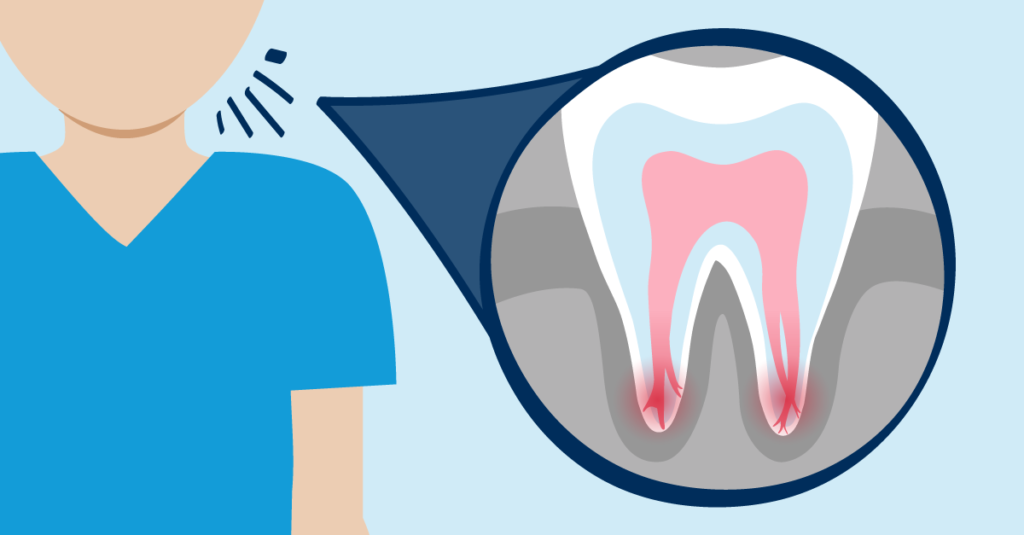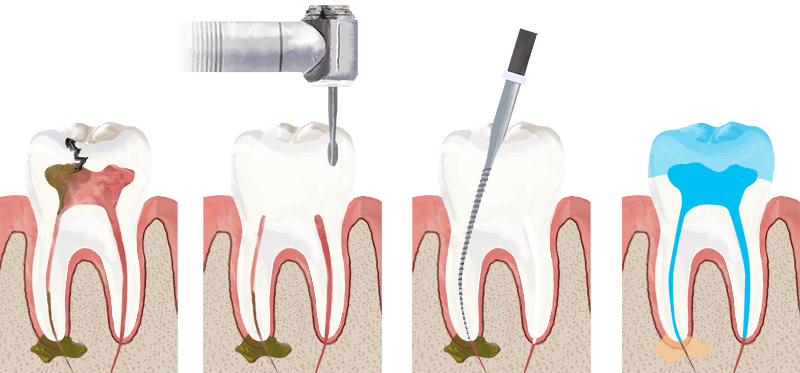What is a Root Canal?


A root canal treatment is needed when damage occurs to a tooth’s pulp. This can happen due to an injury or due to severe tooth decay. A root canal is often a dreaded procedure but is often the only alternative to having a tooth extracted. Root canals are also very effective at eliminating tooth pain.

What Happens After a Root Canal?
After a root canal, you should consider having a porcelain crown put over the tooth as this will help prevent tooth breakage. This is especially helpful if extensive restoration was done, leaving a thin shell of a tooth.
If pain, swelling, and other problems occur after root canal treatment, you may need to meet with your dentist again to determine whether or not further work needs to be done.
Pacific Dental offers top quality dental services and has an extensive history in performing root canals. Our procedures are performed in a spa-like setting, helping you be as relaxed and comfortable as possible. Our highly accredited dental professionals place top priority on quality of work and the comfort of our patients.
No one wants to have a root canal, but when you need one you want it done RIGHT!
Frequently Asked Questions
A root canal is a dental procedure used to treat infection or damage within the pulp (nerve) of a tooth. It involves removing the infected tissue, cleaning and disinfecting the root canals, and sealing the space to prevent further infection.
You may need a root canal treatment if you experience:
Persistent toothache or pain when chewing
Sensitivity to hot or cold that lingers
Swollen or tender gums
Darkening of the tooth
A pimple-like bump on the gums (abscess)
Your dentist will confirm the need for a root canal through a clinical exam and X-rays.
Despite its reputation, a root canal is not painful. With modern techniques and local anesthesia, most patients find the procedure no more uncomfortable than getting a filling.
A typical root canal takes 1 to 2 appointments, depending on the complexity of the case. Molars with multiple roots may take longer than front teeth.
After the treatment, the tooth may feel slightly sensitive for a few days. Your dentist may recommend placing a dental crown to restore the tooth’s strength and protect it from future damage.
Yes. Most patients can return to their regular activities the same day, although some may prefer to rest if mild soreness is present.
The main alternative is tooth extraction, which may require a replacement with a bridge, implant, or denture. Root canal therapy is often the best option to save your natural tooth.
Costs vary depending on the tooth’s location (front vs. molar), the number of canals, and whether a crown is needed. At Pacific Dental, we provide transparent pricing and treatment options based on your case.
Yes. Root canal therapy is a safe and common procedure performed by general dentists and endodontists. It helps eliminate infection and preserve the natural tooth structure.
With proper care, a root canal-treated tooth can last many years or even a lifetime. Regular dental visits, good oral hygiene, and timely placement of a crown will help extend its lifespan.
